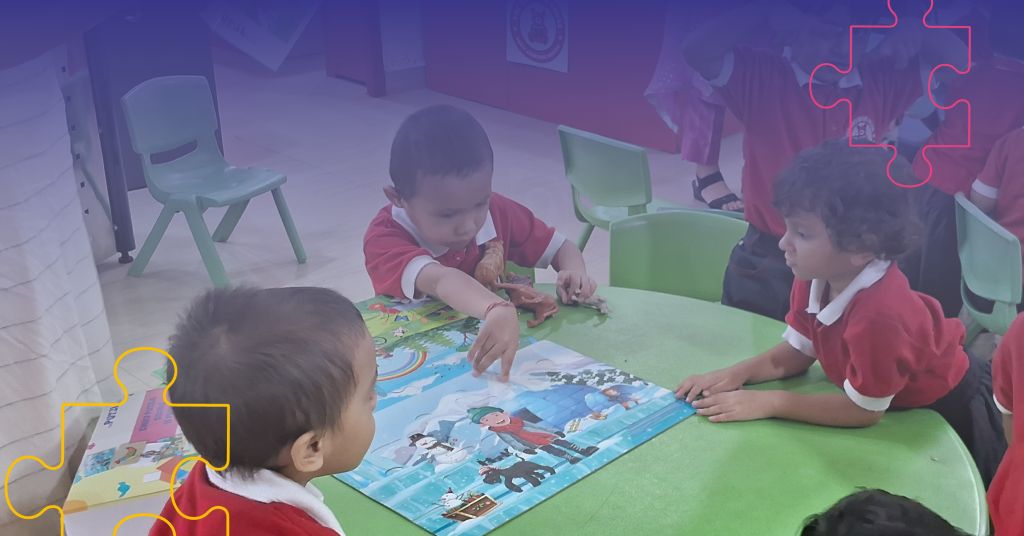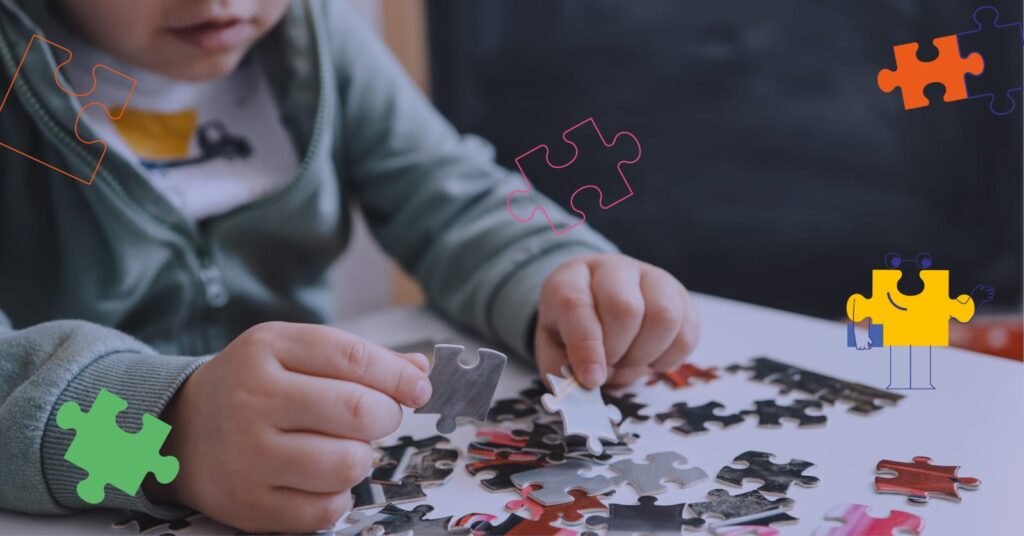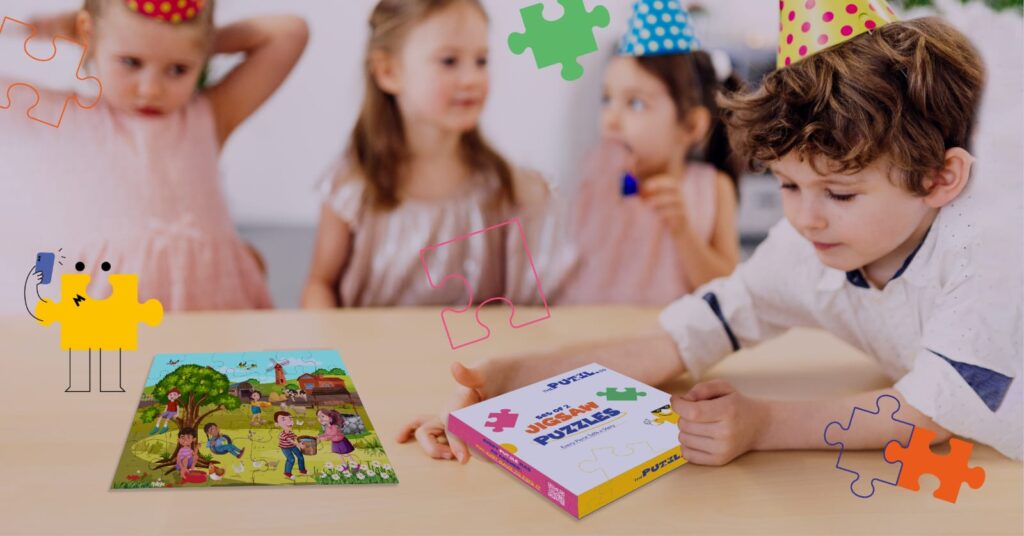Puzzles have been a staple in children’s playrooms for generations. Not only do they provide endless entertainment, but they also play a crucial role in a child’s development, enhancing skills such as problem-solving, critical thinking, and hand-eye coordination. With the wide variety of puzzles available today, parents may wonder which types are best suited for their children. This blog will explore some of the most popular types of puzzles for kids, including jigsaw puzzles, the Rubik’s Cube, magic cubes, and various puzzle games.
Jigsaw Puzzles for Kids
One of the most iconic and enduring types of puzzles is the jigsaw puzzle. Jigsaw puzzles for kids come in various shapes, sizes, and difficulty levels, making them suitable for children of all ages.
Benefits of Jigsaw Puzzles for Kids
- Cognitive Development: Jigsaw puzzles require children to recognize patterns, match shapes, and think critically about how pieces fit together. This helps improve cognitive abilities such as spatial awareness and memory.
- Fine Motor Skills: Handling small puzzle pieces improves hand-eye coordination and fine motor skills, which are essential for writing and other tasks.
- Patience and Persistence: Completing a jigsaw puzzle takes time and effort, teaching children the value of patience and persistence.
Choosing the Right Jigsaw Puzzle
When selecting a jigsaw puzzle for your child, consider their age and skill level. Younger children may benefit from puzzles with larger pieces and simple designs, while older kids can tackle more complex puzzles with smaller pieces and intricate images.
Also Read: The Puzzl Co’s Puzzle Subscription For Kids
Rubik’s Cube
The Rubik’s Cube is a classic puzzle that has fascinated children and adults alike for decades. This 3D combination puzzle challenges players to align the colors on all six sides of the cube, which requires strategic thinking and problem-solving skills.
Benefits of the Rubik’s Cube
- Problem-Solving Skills: The Rubik’s Cube encourages children to think critically and develop strategies to solve the puzzle. It teaches them how to approach problems from different angles and persevere through challenges.
- Memory and Concentration: Solving the Rubik’s Cube requires remembering sequences of moves and concentrating on the task at hand, which can help improve a child’s memory and focus.
- Spatial Awareness: Manipulating the cube enhances spatial awareness, as children must understand how each move affects the overall structure of the puzzle.
Introducing the Rubik’s Cube to Kids
For beginners, there are simplified versions of the Rubik’s Cube available, such as the 2×2 cube, which can be a great starting point for younger children. As they become more skilled, they can progress to the traditional 3×3 Rubik’s Cube and even explore more complex variations.
Magic Cube for Kids
The magic cube, often referred to as a variation of the Rubik’s Cube, offers a different kind of challenge. Unlike the traditional Rubik’s Cube, which has fixed colors, magic cubes for kids often feature shifting shapes and colors, adding a layer of complexity to the puzzle.
Benefits of Magic Cubes for Kids
- Creative Thinking: Magic cubes encourage creative problem-solving as children must figure out how to restore the cube to its original shape and color pattern.
- Fine Motor Skills: Twisting and turning the magic cube helps refine fine motor skills and hand dexterity.
- Patience and Focus: Like the Rubik’s Cube, magic cubes require patience and sustained focus, helping children develop these essential skills.
Choosing a Magic Cube
Magic cubes come in various designs, from simple shape-shifting cubes to more intricate models with multiple moving parts. Choose a magic cube that matches your child’s interest and skill level to keep them engaged and challenged.
Puzzle Games for Kids
Puzzle games for kids encompass a wide range of activities that challenge the mind and stimulate cognitive development. These games can be physical, like board games, or digital, offering a variety of options to suit different preferences.
Popular Puzzle Games for Kids
- Tangrams: This ancient Chinese puzzle game involves arranging geometric shapes to form a specific image. Tangrams enhance spatial reasoning and encourage creative problem-solving.
- Sudoku: Although typically associated with numbers, Sudoku puzzles for kids can feature symbols or images. Sudoku promotes logical thinking and pattern recognition.
- Crossword Puzzles: Crossword puzzles introduce children to new vocabulary and encourage them to think critically about word meanings and relationships.
- Mazes: Maze puzzles help children develop spatial awareness and problem-solving skills as they navigate through complex pathways.
Benefits of Puzzle Games for Kids
- Cognitive Development: Puzzle games challenge the brain, improving memory, attention, and critical thinking skills.
- Social Interaction: Many puzzle games can be played with others, promoting teamwork and communication.
- Fun and Engagement: Puzzle games are enjoyable and can keep children entertained for hours, all while learning valuable skills.
Incorporating Puzzles into Daily Play
Integrating puzzles into your child’s daily routine can be a rewarding experience for both the child and the parent. Here are some tips on how to do this effectively:
- Start with Age-Appropriate Puzzles: Begin with puzzles that match your child’s age and skill level. As they become more confident, introduce more challenging puzzles.
- Create a Puzzle-Friendly Environment: Set up a dedicated space for puzzling where your child can focus without distractions. This could be a corner of the living room or a table in their bedroom.
- Encourage Regular Practice: Make puzzling a regular part of your child’s playtime. Encourage them to spend a few minutes each day working on a puzzle to develop their skills gradually.
- Join the Fun: Puzzling can be a great bonding activity. Join your child in solving puzzles, offering guidance when needed, and celebrating their successes.
Puzzles are a powerful tool for enhancing a child’s development in various areas, from cognitive skills to fine motor abilities. Whether it’s jigsaw puzzles for kids, the challenging Rubik’s Cube, the intriguing magic cube for kids, or other engaging puzzle games, there’s a puzzle out there for every child. By incorporating puzzles into your child’s playtime, you’re not only providing them with hours of fun but also setting the foundation for lifelong learning and problem-solving abilities.
Encourage your child to explore different types of puzzles and watch as they develop new skills, all while enjoying the satisfaction of solving a challenging puzzle.



